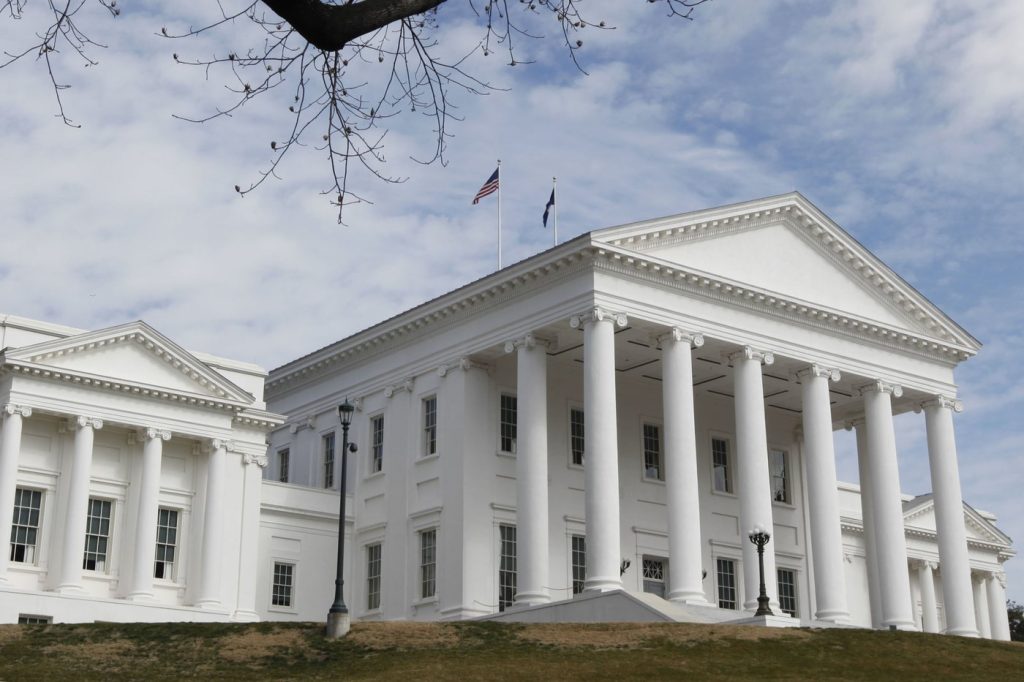RICHMOND, Va. - The Virginia legislature concluded its 45-day session on Saturday, incorporating numerous budget amendments affecting various sectors, including tax cuts and child care initiatives. However, some legislators indicated that they would likely reconvene later this year to address a significant concern: impending large-scale federal government layoffs anticipated by the Trump administration.
This week, a federal judge approved the layoffs, prompting officials in Virginia, which houses approximately 315,000 federal employees according to the Metropolitan Washington Council of Governments, to begin evaluating the repercussions of the job cuts. So far, only a few hundred claims for unemployment insurance have been submitted to the Virginia Employment Commission since the start of the month, but this number is expected to rise significantly.
Virginia Secretary of Labor George 'Bryan' Slater reported during the first meeting of a new bipartisan committee focused on studying the cuts that the state had received fewer than 300 unemployment applications. “We’re sure there are going to be more, but how many? And when you start looking, it’s people guessing and throwing numbers around,” he stated. Democratic Delegate David Bulova, who chairs the committee, emphasized the personal impact of the layoffs, stating, “This affects real families who have been put into a situation that they didn’t think they’d be put in. These are kitchen-table issues.”
Governor Glenn Youngkin announced plans to create a support package for jobless individuals, although specifics were not disclosed. Additionally, Slater mentioned an upcoming online jobs portal aimed at assisting those seeking employment in Virginia, including targeted resources for displaced federal workers. However, State Senator L. Louise Lucas, chair of the finance committee, noted a lack of communication regarding Youngkin's strategy.
Before the legislative session ended, the House of Delegates voted to expand a previously established special session, ensuring lawmakers can reconvene later this year. Senate Democrats did not pass a similar resolution but expressed commitment to doing so in the upcoming weeks.
The legislature passed amendments to the two-year budget as well, which included provisions for a $200 rebate for each taxpayer and bonuses for state employees and teachers. These rebates are expected to be distributed in mid-October, conveniently timed with the election season when numerous statewide offices will be contested.
Furthermore, there were no budget amendments concerning the potential changes to the federal match rate for Medicaid, as Congress is deliberating on significant funding for the program. Virginia is among nine states that could swiftly discontinue Medicaid expansion if federal funding decreases. An oversight subcommittee initially required by the Virginia Senate’s budget proposal, which would review disenrollments in such an event, did not make it to the final joint budget.
The budget also excluded several of Governor Youngkin's key amendments, such as establishing a permanent, refundable car tax credit for lower-income residents. Additionally, a proposed tax cut on tips was also left out. The budget amendments will be sent to Youngkin's desk, where he will have 30 days to sign, veto, or amend the legislation. Lawmakers will reconvene in April to consider any proposed adjustments.
Youngkin expressed his intent to review the legislation meticulously, indicating that there would be significant matters to address during the reconvene session. Many bills that emerged from the Democratic-led legislature are retrying measures that Youngkin had vetoed in the spring. This includes a bill to eliminate a tax exemption for the Daughters of the Confederacy.
Additionally, legislators passed initiatives aimed at addressing maternal health disparities among people of color, like covering postpartum doula visits for those enrolled in Medicaid. Both legislative chambers also approved measures to prohibit the use of campaign funds for personal expenses, reversing a decision made in the prior year.











